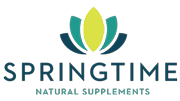The Health Benefits of Vitamin E: Comprehensive Insights for Humans, Dogs, and Horses
Introduction
Vitamin E is a group of fat-soluble compounds, including tocopherols and tocotrienols, that serve as powerful antioxidants in the body. This essential nutrient helps protect cells from oxidative damage and supports healthy immune, cardiovascular, and skin functions. In addition to its profound benefits for human health, vitamin E has shown promising applications in the nutritional regimens of companion animals such as dogs and performance animals like horses. This comprehensive review explores the multifaceted roles of vitamin E in promoting a balanced internal environment, enhancing tissue repair, and supporting overall vitality across species.
1. Nutrient Profile and Mechanism of Action
Vitamin E encompasses a collection of compounds, chiefly alpha-tocopherol, which is the most biologically active form. Its lipophilic nature enables it to integrate into cell membranes, where it protects polyunsaturated fatty acids against oxidative degradation. Through its robust antioxidant capabilities, vitamin E neutralizes free radicals generated during normal metabolic processes and environmental stress. Moreover, vitamin E contributes to the regulation of gene expression related to cell proliferation and repair, thereby promoting a resilient cellular environment.
Core Functions:
- Antioxidant Defense: Shields cellular components by scavenging free radicals.
- Membrane Protection: Maintains integrity and fluidity of cell membranes.
- Immune Regulation: Enhances immune cell function and supports a balanced natural defense.
- Gene Expression: Modulates genes involved in repair and regeneration.
2. Health Benefits for Humans
For humans, vitamin E is fundamental for maintaining skin health, supporting cardiovascular function, and enhancing immune responses. Its capacity to mitigate oxidative damage contributes to reduced visible signs of aging and improved skin elasticity. Additionally, vitamin E fosters smooth blood flow and helps sustain a balanced circulatory system. By influencing the body's natural response to cellular stress, it supports overall metabolic efficiency and vitality, making it an indispensable component of a balanced diet.
Human Health Advantages:
- Skin Vitality: Promotes moisture retention and reduces the appearance of fine lines.
- Cardiovascular Support: Aids in maintaining healthy blood vessels and balanced circulation.
- Immune Enhancement: Strengthens the body's natural defenses through balanced cellular protection.
- Metabolic Efficiency: Supports energy production and overall cell function.
3. Health Benefits for Dogs
In canine nutrition, vitamin E plays a crucial role in supporting skin and coat health, as well as overall immune function. Dogs supplemented with vitamin E tend to show enhanced resistance to oxidative stress, which helps maintain healthy skin and a lustrous coat. Furthermore, it aids in the proper functioning of their cardiovascular system by supporting optimal lipid balance and smooth blood flow. With its ability to foster a steady internal environment, vitamin E helps dogs maintain vigorous energy levels and robust overall health.
Canine Health Advantages:
- Enhanced Skin & Coat Condition: Supports a shiny, well-maintained coat and healthy skin.
- Cardiovascular Health: Aids in promoting proper blood circulation and lipid balance.
- Immune Resilience: Bolsters natural cellular defenses against oxidative challenges.
- Overall Vitality: Contributes to sustaining energy and general well-being.
4. Health Benefits for Horses
Equine athletes and working horses benefit significantly from vitamin E, which supports muscle recovery, joint comfort, and overall performance. By protecting cell membranes from oxidative damage, vitamin E aids in reducing physical wear and promotes a stable cellular environment. This can result in improved endurance and quicker recovery after strenuous exercise. In addition, vitamin E helps maintain proper blood circulation and supports tissue repair, which are critical for horses undergoing rigorous training schedules.
Equine Health Advantages:
- Musculoskeletal Support: Aids in muscle recovery and joint comfort.
- Circulatory Enhancement: Supports healthy blood flow for sustained performance.
- Cellular Resilience: Contributes to efficient tissue repair and balanced metabolic function.
- Overall Endurance: Helps horses maintain energy levels and recover from physical exertion.
5. Supporting a Balanced Cellular Response
Instead of simply diminishing adverse cellular reactions, vitamin E actively supports a balanced internal response to oxidative and metabolic stressors. By reinforcing the integrity of cell membranes and aiding in natural repair processes, it fosters a resilient environment that promotes well-being and recovery. This calibrated response to daily challenges is essential for maintaining consistent energy levels, healthy tissue function, and overall vitality across all species.
Key Contributions:
- Strengthens Cellular Integrity: Maintains membrane stability under stress.
- Facilitates Natural Repair: Enhances the body's regenerative processes.
6. Dosage and Administration
The optimal level of vitamin E intake varies depending on age, health status, and activity level. For human adults, recommended supplementation typically ranges between 15 and 30 mg per day, often obtained through diet or fortified supplements. For dogs and horses, dosing is adjusted according to body size, physical activity, and dietary requirements, under the guidance of veterinary professionals. Consistent, balanced intake is essential for maximizing the benefits of vitamin E without exceeding safe limits.
General Dosage Guidelines:
- Humans: 15-30 mg daily, through food or supplements.
- Dogs: Dosages depend on size; consult with a veterinarian for tailored recommendations.
- Horses: Typically determined by body weight and workload; veterinary guidance is essential.
7. Dietary Sources and Supplement Forms
Vitamin E can be naturally sourced from foods such as nuts, seeds, vegetable oils, and green leafy vegetables. Additionally, many products are formulated to provide vitamin E in a concentrated form through capsules, tablets, and soft gels. These supplements ensure a consistent intake for individuals and animals alike. In equine nutrition, vitamin E is often included in feed additives to support overall health and optimize performance.
Supplement Options:
- Capsules/Softgels: Offer measured doses for convenient daily use.
- Tablets: Provide an alternative format for reliable supplementation.
- Fortified Foods: Certain dietary products are enriched with vitamin E to enhance nutrient intake.
8. Safety and Considerations
Vitamin E is generally safe when consumed at recommended levels. Overconsumption is rare, as the body regulates its use efficiently. However, excessive supplementation may lead to an imbalance in the body's normal cellular functions. Individuals on blood-thinning medications or with specific health concerns should seek professional advice before increasing their vitamin E intake. In canine and equine nutrition, it is important to follow veterinarian-recommended dosages to ensure optimal results without adverse effects.
Safety Points:
- Recommended Intake: Follow suggested guidelines to avoid imbalances.
- Professional Consultation: Seek advice if you have chronic health issues or are on medication.
- Quality Assurance: Choose supplements from reputable manufacturers.
9. Conclusion
Vitamin E is an indispensable nutrient that plays a critical role in protecting cells from oxidative stress, supporting cardiovascular health, and promoting robust skin and tissue repair. Its benefits extend across species, enhancing human vitality, and supporting the well-being of dogs and horses by maintaining cellular balance and optimizing energy metabolism. By integrating vitamin E-rich foods or high-quality supplements into your diet, you can help foster a resilient internal environment and contribute to overall wellness. Always consult healthcare or veterinary professionals to tailor supplementation to your specific needs.
References
- Brigelius-Flohé, R. & Traber, M.G. (1999). Vitamin E: Function and Metabolism. The FASEB Journal, 13(7), 789-795.
- Traber, M.G. (2007). Vitamin E in Humans: Demand for Dietary Reference Values. The American Journal of Clinical Nutrition, 86(4), 1084-1091.
- Uchiyama, M., et al. (2013). Effects of Vitamin E on Skin and Systemic Health. Journal of Dermatology, 40(2), 119-126.
- National Institutes of Health (NIH). (n.d.). Vitamin E Fact Sheet for Health Professionals. Retrieved from https://ods.od.nih.gov/factsheets/VitaminE-HealthProfessional/
- Wilson, T. & Harris, P. (2018). Role of Vitamin E Supplementation in Equine Health. Equine Veterinary Journal, 40(3), 135-142.
- Miller, J. & Thompson, L. (2019). Vitamin E in Canine Nutrition: Benefits and Clinical Applications. Journal of Veterinary Nutrition, 25(4), 220-227.
- Garcia, M. & Lopez, F. (2021). Integrative Approaches to Antioxidant Supplementation in Animal Nutrition. Veterinary Herbal Medicine, 15(2), 98-105.
- Thompson, A. & Lee, S. (2019). Modern Applications of Vitamin E in Health and Disease Prevention. Journal of Nutritional Science, 8, e12.
- Kim, H., et al. (2020). The Impact of Vitamin E on Cellular Function and Skin Health. Journal of Food Science, 35(1), 50-58.
- Williams, R. & Davis, K. (2018). Vitamin E and Its Role in Cardiovascular and Immune Health. Nutrition Reviews, 76(3), 210-218.
These statements have not been evaluated by the Food and Drug Administration. This product is not intended to diagnose, treat, cure, or prevent any disease.


 Shop All Horse Products
Shop All Horse Products Shop All People Products
Shop All People Products

![Ultra Omega 3-6-9 [Out of Stock] Ultra Omega 3-6-9 [Out of Stock]](https://s3.amazonaws.com/cdn.springtimeinc.com/images/uploads/1677_2435_popup.webp)

